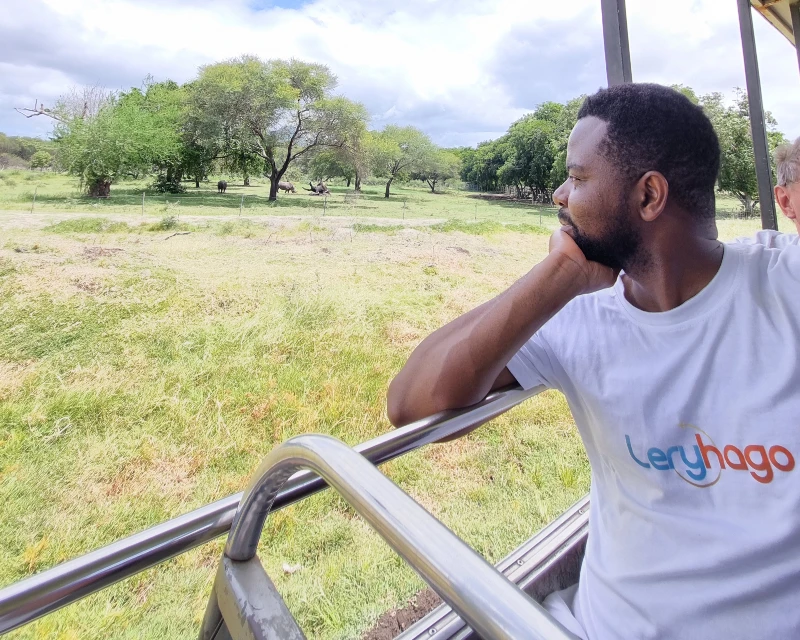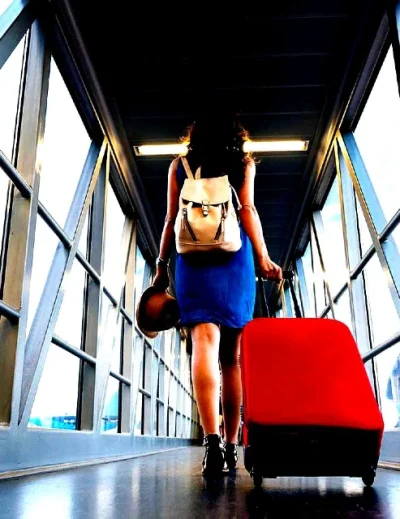
Common travel problems and how to solve them
Travel is the ultimate fun, but things don’t always go as planned. When your bags go missing, flights are delayed, or you’re suddenly feeling lost in a new place, it can ruin the fun. However, for every travel problem, there’s a fix or at least, a way to make it a little easier on yourself.
Here’s a quick guide on how to solve some common travel problems.
Lost luggage
Losing your luggage is a nightmare. Here’s what to do if you lose your bags:
- Head straight to the airline counter
Don’t waste a minute. Every airline has a lost luggage desk where you can file a report. Give them a detailed description of your bag and its contents. - File a claim and save your receipts
If you need to buy a toothbrush, a change of clothes, or anything else while you wait for your bags, keep those receipts. Airlines and travel insurance companies usually cover essential expenses due to lost luggage. Also ask if they offer any daily allowance for essentials.
Tip for future trips
- Add a Bluetooth or GPS tracking device, like an AirTag, into your bag so you can locate it through an app.
- Take a picture of the outside of your luggage and its contents before you fly. If anything goes missing, you’ll have proof of what was inside.
- Place a piece of paper with your name, phone number, and email address inside your bag so that if the outside tag is lost, it can still be found.
- Use a carry-on whenever possible to avoid baggage issues altogether.
Delayed or canceled flights
Flight delays and cancellations are frustrating, but there are steps you can take to manage the situation. Here’s what to do if your flight is delayed or canceled:
- Know your rights
Depending on the location and airline, you may be entitled to compensation, meals, or even a hotel stay if your flight is delayed or canceled.
If you’re flying from Nigeria, you have rights protected by the Nigerian Civil Aviation Authority (NCAA). For delays of 2 hours or more, the airline is required to provide refreshments, meal vouchers, and allow you two phone calls, SMS, or emails. If the delay reaches 3 hours or more, you’re entitled to a ticket refund. Be sure to ask the airline about these options if you’re facing an extended delay. - Contact the airline and travel insurance provider
Call the airline’s customer service or speak to an agent at the gate. Also, check your travel insurance policy for coverage on delays, which can include meals, accommodations, or alternative travel arrangements. - Rebook as soon as possible
Most airlines let you rebook your flight through their app. This can be quicker than waiting in line at the counter. Some airlines may even allow you to switch to an earlier or later flight if seats are available. - Ask about compensation or vouchers
For long delays, ask about food vouchers, hotel bookings, or lounge access if the delay is extended. And keep your boarding pass and any other documentation related to the delay; you’ll need it for compensation claims later.
RELATED: Here’s how to survive a long layover
Time zone fatigue
Jet lag is real and can make the first few days of a trip rough. Here’s how to adjust faster:
- Get on local time ASAP
As soon as you board the plane, set your watch or phone’s clock to your destination’s time zone and try to follow that schedule. This can help trick your body into adjusting before you land. - No caffeine or alcohol
These cause dehydration and can worsen jet lag. Stick to water. - Expose yourself to natural light
Sunlight is one of the best ways to reset your internal clock. Try to spend as much time outdoors as possible during the day.
Language barriers
Stepping into a new country with everything in another language can be a huge culture shock. But this doesn’t have to stop you from enjoying your trip.
- Download translation apps
Google Translate and other language apps can translate text, voice, and even photos of signs. Download the offline language packs in case you don’t have internet access when you land. - Learn some key phrases
Knowing phrases like “hello,” “please,” “thank you,” and “excuse me” can go a long way.
Theft
Losing valuables can be one of the worst parts of travel. Here’s how to protect yourself:
- Stay alert
Use a crossbody bag and don’t show off expensive items. When in crowded areas or even places you deem safe, stay alert as pickpockets are often sly. - Split your cash and cards
Don’t keep all your money in one place. - Keep valuables in a money belt
Put your passport, extra cash, and important cards in a money belt under your clothes. Use a smaller wallet for everyday cash.
Food poisoning
When your stomach isn’t as adventurous as you are, here’s what to do:
- Stay hydrated
Food poisoning can quickly lead to dehydration, so drink as much water as you can. - Keep some basic meds with you
Pack a small first aid kit with stomach meds, rehydration tablets, and painkillers.
RELATED: Must-have solo travel essentials for a stress-free journey
Luggage weight limits
It’s easy to overpack. Here’s how to avoid baggage fees:
- Weigh your luggage before leaving
If you travel frequently, buy a portable luggage scale to check your bag’s weight before you get to the airport. - Wear your heavier items
Wear your heaviest shoes, jacket, and layers on the plane to free up space and weight in your luggage. - Be aware of airline policies
Some budget airlines have strict weight limits and baggage sizes, especially for carry-ons. Check ahead and be prepared to pay extra for a larger bag if needed.
Connectivity issues
Here’s what to do if you find yourself disconnected.
- Get a local SIM card or eSIM
Buying a SIM card at your destination is often cheaper than roaming. Many countries sell tourist SIMs at the airport with data plans that work immediately.
Use offline maps
Download maps on Google Maps before you leave home so you can access directions even without a connection.









Leave a Reply